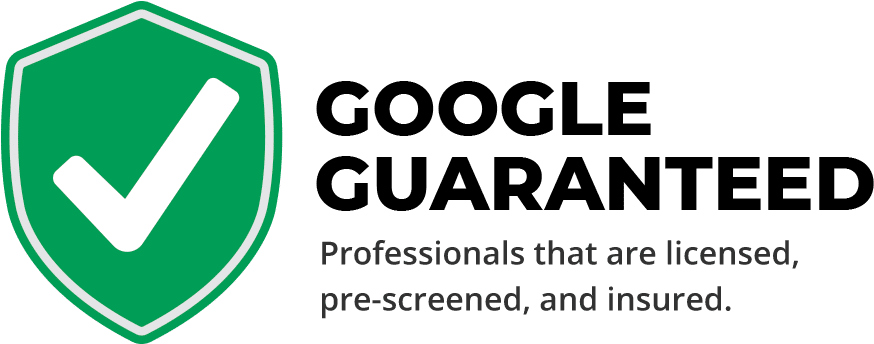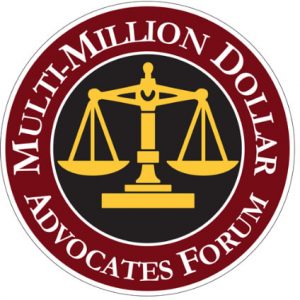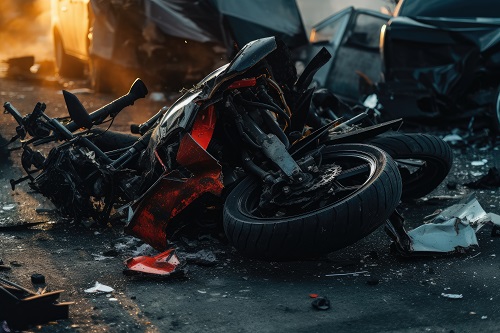Table of Contents
ToggleYou’ve suffered significant injuries in a motorcycle accident and now face a decision. The insurance company has offered you a settlement that covers your current damages, but you might have to undergo further medical care to recover fully. Should you settle your case or go to trial to get more money?
A Florida motorcycle accident lawyer can help you build a compelling case for financial compensation. They can also help you understand the merits of your case and whether you could recover more by taking it to trial. Their analysis of when to settle your case versus going to trial will guide you to an informed decision.
A Motorcycle Accident Lawsuit to Protect Your Right to Settle or Go to Court

Florida motorcycle accident trials rarely occur. Most accident claims are resolved with an insurance settlement. However, here’s why you should still file your lawsuit even if you anticipate a settlement:
- If you don’t file your lawsuit before the deadline, the court may not permit you to file it.
- If you file it after the deadline, the court may dismiss it without hearing its merits
- Without the threat of a lawsuit, the insurance company could refuse to improve its initial offer
According to Florida Statutes § 95.11, you generally have two years to file your injury or wrongful death lawsuit. If your claim involves a government or municipal agency, you will contend with additional notification and filing deadlines per Florida Statutes § 768.28. A motorcycle accident lawyer can help you interpret and comply with the applicable filing deadlines for Florida motorcycle trials.
Financial Components of a Motorcycle Accident Settlement vs. Trial in Florida
Whether your motorcycle accident case is resolved in or out of court, you could recover post-accident damages for the following:
- Economic damages: past, current, and future medical bills; past, current, and future lost income; reduced earning capacity; treatment-related travel expenses; and property damage, destruction, or diminished value.
- Noneconomic damages: temporary or permanent disability, scarring, and disfiguring injuries; physical pain and suffering; mental and emotional anguish; and compensation for the loss of enjoyment of life.
- Wrongful death damages: funeral and burial expenses, cremation costs, loss of loved one’s income, loss of their domestic contributions to your family, and loss of consortium, companionship, guidance, and support.
You’ll need evidence to support your compensation demand. Your lawyer will dedicate a portion of your case file to this evidence.
When filing an insurance claim for a motorcycle accident, the insurance company will demand proof of its policyholder’s negligence. That means identifying and proving the following legally required elements:
- Duty of care: The at-fault driver’s responsibility is to operate their vehicle safely and according to Florida’s traffic laws.
- Breach of duty: The at-fault driver’s action (e.g., speeding, dooring, or disregarding a traffic sign or signal) that caused the accident.
- Causation: Evidence that the at-fault party’s breach of duty directly led to your accident and the resulting injuries.
- Damages: Monetary damages (economic and noneconomic) you suffered due to the accident and your injuries.
Florida motorcycle claims start with proving the negligence that led to your collision. The evidence you collect can prove these elements.
How Motorcycle Accident Settlement Negotiations in Florida Work
The next step to settling motorcycle cases involves accurately assessing your recoverable losses. Take your time to reach this figure since you cannot request additional damages once you sign your settlement agreement.
Subsequent steps include
- Creating and sending a settlement demand letter
- Assessing the pros and cons of each offer you receive
- Making counteroffers when appropriate and warranted
Multiple rounds of negotiation could lead to a settlement agreement. If not, your case might have to proceed to court.
Know When to Take Your Motorcycle Accident Case to Court for Resolution
Sometimes, despite your best efforts to negotiate with the at-fault driver and their insurance company, you cannot settle your motorcycle case out of court. If an acceptable settlement is not forthcoming and your case goes to trial, you must:
- Complete all required court paperwork
- Name the at-fault driver in an official summons
- Pay all fees and obtain the seal of the court clerk
- Have the summons served to the at-fault driver
If a lawyer represents you, they will manage all these steps, including paying investigative costs and court fees. They will prove the at-fault driver’s negligence, collect evidence, and prepare exhibits and legal arguments for the trial phase. A trier of facts (judge or jury) will render a verdict on your case and determine how much money you could recover.
Evidence and Exhibits for Settlement Negotiations and Going to Court
Motorcycle accident claims rely on a solid evidence file to demonstrate the events that led to the collision and establish the at-fault driver’s negligence. Evidence can include:
- Accident report
- Injury photos
- Video Footage
- Accident reconstruction
- Medical records
- Medical bills
- Proof of income
- Repair invoices
- Witness statements
- First responder reports
- Expert testimony
If you have a lawyer, they will collect and organize all the evidence you need. They will also submit it to the insurance adjuster or present it at trial.
Get Help Setting or Going to Trial for Florida Motorcycle Claims
Were you or a loved one injured in a motorcycle accident? If so, the law offices of Wolf & Pravato can help you fight for a favorable settlement or take your case to trial. Our caring and attentive staff will leverage its decades of experience handling personal injury cases in Florida to guide you toward the best resolution for you and your family.
Learn more about Florida motorcycle accident cases and what goes into deciding when to settle versus going to trial. Call (954) 633-8270 today to reach a team member for your free case review.





















